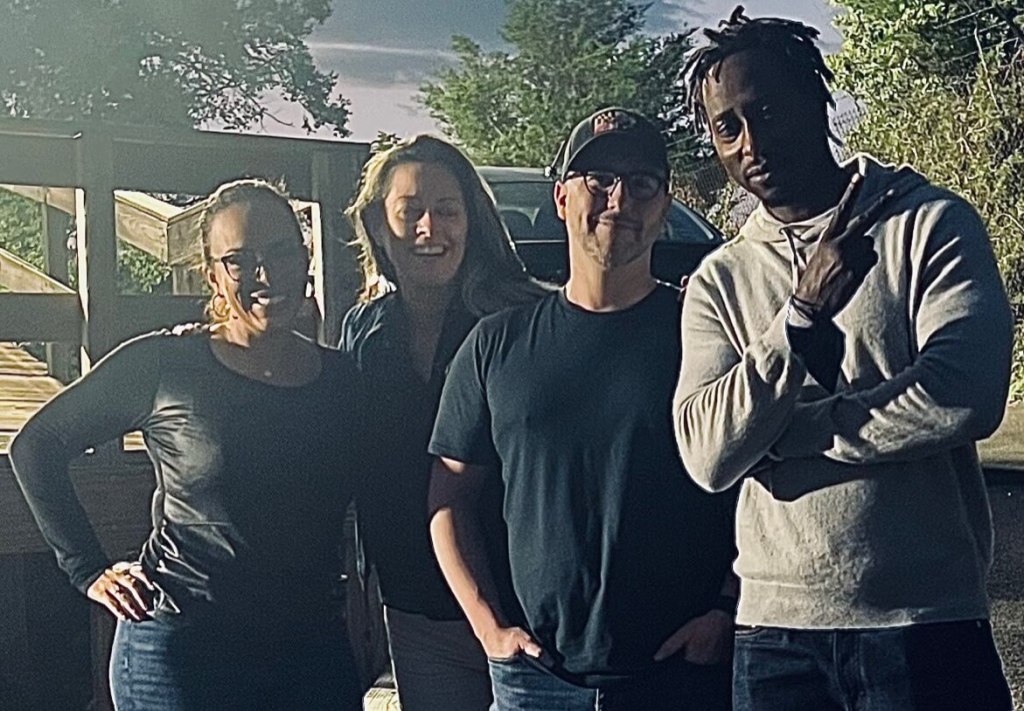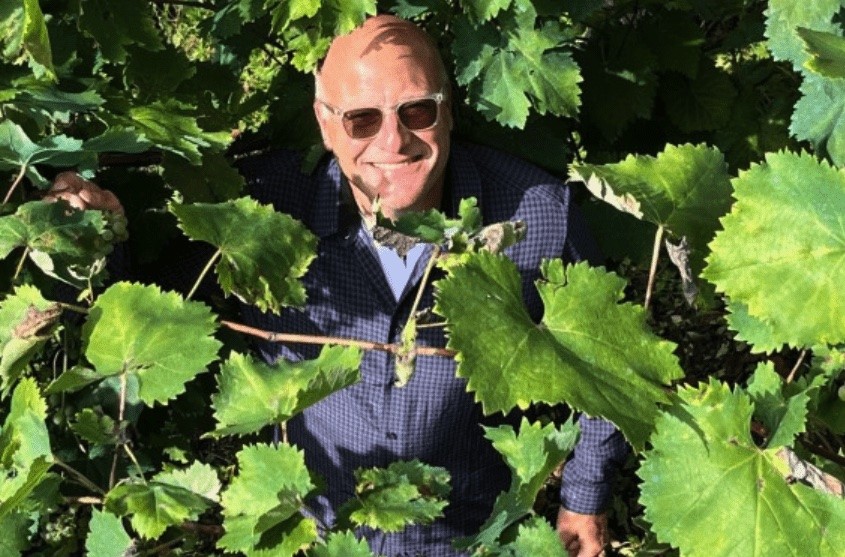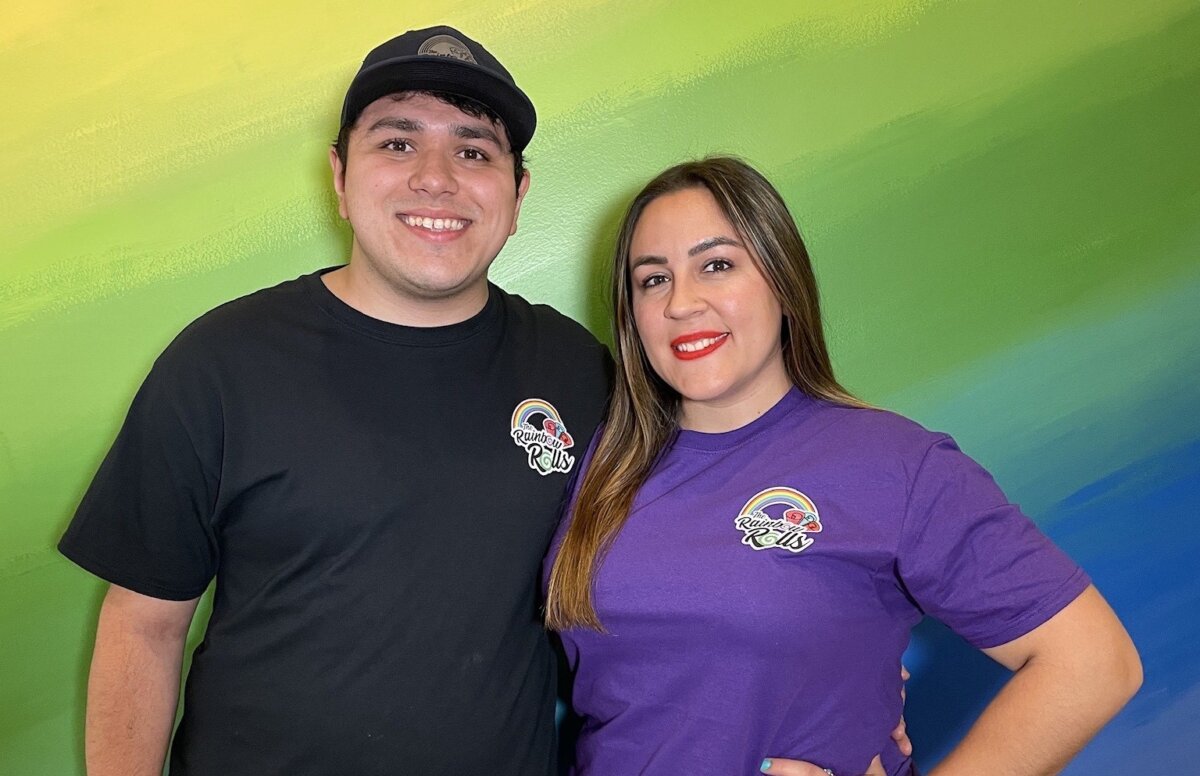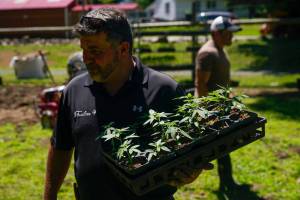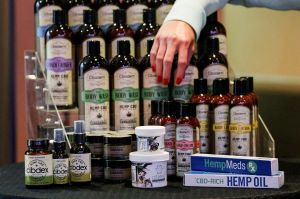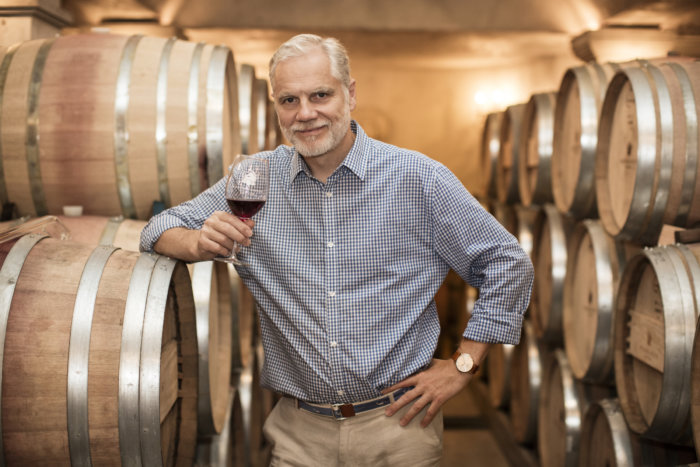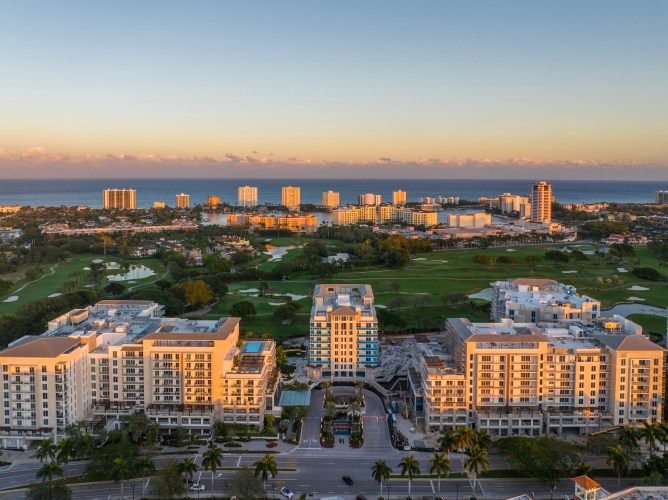A chef who helps previously incarcerated people return to society, a rabbi who founded a leading medical marijuana dispensary, a yogi who leads a wellness center, and the first Black and Latina cannabis company owner in Maryland are among the first people to win licenses to sell recreational pot on Long Island.
The four people make up the group behind Keep It 100 LLC, which is among a half dozen local entities that New York State regulators awarded adult-use marijuana retail licenses to last month, marking a major milestone in advancing the historic end of prohibition on pot. Among 900 entities that applied, the four were overcome with emotion upon learning they were selected along with 36 statewide to get the green light on Nov. 21.
“I started screaming and looked at my kid and said to myself, “We’re making history so you can live in the present abundantly,’” said Christina B. Johnson, who is a partner in the company and CEO of Rooted Therapeutics LLC, a woman-owned cannabis firm that also has an office in Washington, D.C. “We’re awestruck by the responsibility of the win and then at that same time hypersensitive to what a great endeavor we have before us.”
Only four town governments on Long Island — Riverhead, Southampton, Brookhaven and Babylon — decided not to opt out of allowing pot shops and cannabis cafes to operate within their borders, although none have received paperwork seeking to open brick-and-mortar locations from the new retail licensees. But state Cannabis Control Board (CCB) representatives have said that the companies will be able to start home delivery soon, once regulations are finalized in the coming weeks.
“Delivery can occur in any area, regardless of opt out,” said Freeman Klopott, a representative of the state Office of Cannabis Management (OCM).
The development is a significant step forward for the state, which became the 16th nationwide to legalize recreational marijuana for adults older than 21 last year — and is now among 21 states, plus Washington, D.C. to do so. Empire State regulators plan to issue another 139 retailers soon. Only individuals with prior cannabis-related offenses — or who are the family member of someone with one — and who have a record of a successful business or nonprofit were eligible for Conditional Adult-Use Retail Dispensary (CAURD) licenses.
“We’ve ensured the first sales will be made at dispensaries operated by those impacted by the unjust enforcement of cannabis prohibition,” said Tremaine Wright, who chairs the CCB.
Chef Marquis Hayes, an award winning self-taught chef, artist, and author from the Bronx, served five years in prison before becoming a partner in Keep It 100. He says that since his release and before joining the team, he worked under chefs at several top restaurants including The French Laundry, Benu, and WD-50, where he met Chef Malcolm Livingston II, with whom he partnered and became a co-founder of Ghetto Gastro. While running his farm-to-table restaurant and market, 22 Chestnut in Cooperstown, N.Y., he launched a high-end luxury butter line, Brown Butter New York, and since his release created the curriculum for Drive Change NYC, a program that teaches the soft skills of hospitality to formerly incarcerated individuals.
“I think it was destiny that we were supposed to meet,” the chef said to his partners during an interview, noting that he had his doubts that they would win. “It happened because you guys are the right people.”
Also a part of that team effort is Rabbi James Kahn, the executive director of Liberty Cannabis Cares (LCC), the social impact and corporate responsibility team at Holistic Industries, which opened the first Liberty dispensary in Rockville, Md., before becoming its national director of community outreach. He and his family previously opened Takoma Wellness Center, Washington, D.C.’s first medical cannabis dispensary. He noted that Keep It 100 will most likely be the corporate name and not the name of the retail establishment that customers will interact with.
“I was literally jumping up and down and really overwhelmed with emotion,” he said, recalling his reaction when he learned his team won the license. “It felt like kismet. It felt like it was meant to be.”
He noted that while the company is still narrowing its search on where exactly it will set up shop, the team has ties to communities across the region.
“Delivery should be up and running quite soon,” he emphasized. “We have a clear sense from the state that they want delivery to happen and they want delivery to happen quickly.”
Pricing will vary, he added.
“We recognize that a lot of folks who really rely on cannabis to have a great quality of life and we wanna make sure that price does not stand in the way,” he said. “We will offer a diverse range of prices related to quality to make sure that there will be something for everybody.”
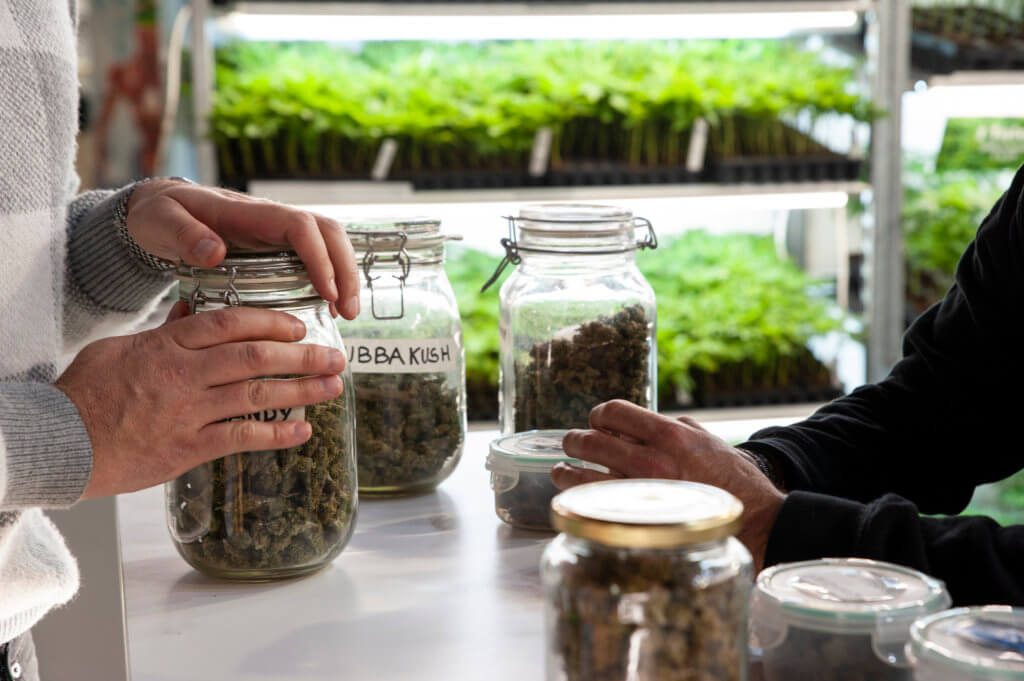
The fourth member of the team, Recipe For Humanity Co-Founder Kim Stetz, was not available for comment. The other five ganja retailers coming to LI — Strain Stars, Albert D. Capraro, Brian Stark Enterprises LLC, Hydro Phonics, and Root 13 LLC — either could not be reached or were not immediately available for comment. Although some are expected to open by the end of the year, it may take longer than that on Long Island.
“We have not put zoning in place yet,” said Southampton Town Supervisor Jay Schneiderman, noting that the Shinnecock Indian Nation’s Little Beach Harvest dispensary is slated to open next year regardless, since the tribe is not under town jurisdiction. “Therefore there is nowhere yet to apply.”
In November, the Town of Riverhead passed zoning rules that prohibit retail or on-site consumption establishments to be located near a school, playground, or daycare center, among other facilities and rules. Babylon is considering similar rules. And when the Town of Brookhaven opted in, it limited such establishments to industrial areas.
A court ruling earlier this month has delayed the CCB from approving dispensaries in some parts of the state — LI is not affected — amid a legal dispute over licensing criteria. Nevertheless, officials said they would issue the remaining licenses as quickly as possible.
With the first licenses now issued, it remained to be seen whether officials would step up their efforts to go after scores of unauthorized dispensaries opened in the past year by people who shrugged at licensing requirements.
The cannabis board also advanced proposed regulations for the sale of marijuana, with a focus on public health, product quality and safety, and preventing those under 21 from buying cannabis. The CCB additionally approved licenses for eight cannabis processing facilities, three labs, and 16 additional cultivators, although their identities were not immediately released. Of more than 250 pot farms approved statewide, nearly a dozen are on the East End.
New York has also planned a $200 million public-private fund to aid “social equity” applicants to help redress the ravages of the war on drugs, especially in communities of color. Nonprofits were considered for licensure if they had a history of serving current or formerly incarcerated people, among other requirements.
Housing Works, a New York City nonprofit, said the license it got would allow it to continue its work helping low-income New Yorkers living with HIV or AIDS.
“It was clear to us that sales from the legal recreational cannabis industry would allow us to help more people and increase services to our clients, whether that is supporting those that have been unjustly incarcerated in the war on drugs, or people experiencing homelessness and/or living with HIV/AIDS,” the agency said in a statement.
Many members of the CCB and members of the public who attended the meeting heralded the first CAURD licenses as a win not only for the state’s economy, but also as a triumph for social justice. In March, Gov. Kathy Hochul announced the Seeding Opportunity Initiative — which aimed to equip individuals with prior cannabis-related criminal offenses the opportunity to make the first legal marijuana sales with products by New York farmers.
Christopher Alexander, the executive director of OCM, said one of the defining components of the Seeding Opportunity Initiative moving forward will be identifying communities that are disproportionately impacted by both cannabis-related offenses and bureaucratic red tape.
He said the office is trying to give those groups — primarily people of color and women — more of an opportunity to apply and receive licensure in starting their own dispensaries.
“The data is irrefutable,” he said. “ Nowhere in this country was the enforcement of cannabis prohibition weaponized more methodically against under-resourced communities than right here in New York.”
As for the product itself, dispensaries are expected to have smokeable and edible forms of cannabis.
“There’s some untapped talent that has yet to be introduced,” said Chef Hayes. “We want to make sure we have the best. We want to make sure we work with the best.”
-With Associated Press and Camille Botello of The Bronx Times



